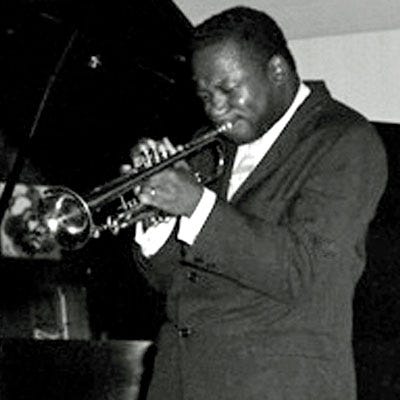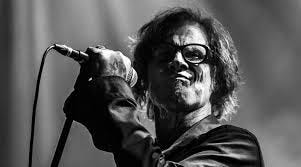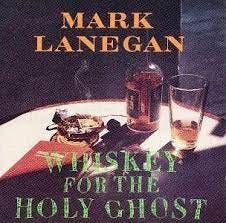In 1973, Columbia Records issued a short posthumous Clifford Brown album called The Beginning and the End. Two of the five tracks were discoveries from the very beginning of the trumpet legend’s professional career in 1952, when he was playing with Chris Powell’s showy R&B band the Blue Flames. Three tracks (including a wicked fast “Donna Lee”) were recorded at a jam session in Philadelphia in 1956, just before Brown was killed in a crash on the New Jersey Turnpike.
It's a fascinating time-lapse experience, hearing Brown’s blistering early solos alongside more “mature” playing recorded just four years later. It shows that from the start, he had abundant technique and torrents of ideas; within the tragically short span of his working career, he pushed those gifts further in all directions – becoming both speed demon and master of the lyrical ballad. That development is traceable through a series of classic records with Max Roach and Sonny Rollins, and the gorgeous With Strings project, and the cameos he made with singers, and really everything he recorded. Check Clifford Brown whenever you need to be reminded about how rapidly humans can progress.
A similar, if murkier, evolution story awaits in the discography of Mark Lanegan, the singer and songwriter and frontman of the grunge-adjacent Screaming Trees who died on Feburary 22 at age 57.
Most people know Lanegan’s haunting vocal persona from a 1992 Screaming Trees song called “Nearly Lost You” that was featured in the Cameron Crowe film Singles. Here we must pause and lament the way long, varied, fruitful careers are compressed into shorthand for the obituaries and remembrances: Lanegan was much more consequential than his few highlight-reel hits might indicate. Like Clifford Brown and many other artists, Lanegan took his talent places. He fitted his unusual skills – a leathery, weary/wary voice, his disquieting poetic imagery that felt like it was drawn from paranormal encounters or 2 AM dialogs in dive bars – into all kinds of settings, from intimate duo works with Isobel Campbell to the glam celebrations of Queens of the Stone Age. He sounded at home belting long and portentous tones over heavy psychedelic rock, then centered most of his solo works on more austere textures – environments that allowed his prayerlike and regret-tinged meditations on wrong turns space to breathe, and then sink in. Later, on the arresting Gargoyle, he explored majestic juxtapositions of serrated-saw synths and electric guitars.
Though associated with grunge, Screaming Trees predated (and, by some accounts, helped influence) that maelstrom: Its demo tape was recorded live in the studio in 1985 and later released as Other Worlds; it shows that Lanegan already knew how to craft (and sell) a hooky refrain, even when the band behind him was making noise directly influenced by punk and new wave.
Those punk influences receded in the early ‘90s, and by 1996 and the astonishing Dust, Lanegan and his cohorts were creating sounds that defied genre – the music swirls together earnest folk melodies and dissonant harmonies, the plainspoken declarations of gospel and the pitch-bending psychedelic myth-making of the Doors.
I missed the Screaming Trees’ coda, Last Words: The Final Recordings, which was intended as the followup to Dust when it was recorded in 1998, but found no champions at labels and was not released until 2011. Given the adventurousness of Dust, it’s a disappointment – at times it sounds like the band is trying to calibrate a path based on prevailing tastes rather than heeding its own internal compass. By the middle of the ‘90s, Lanegan was already on a different path, creating anguished, disarmingly beautiful solo works – see several from 1994’s Whiskey for the Holy Ghost on the attached playlist, works that argue we lost one inspired rock mythmaker when Mark Lanegan died.
***
The last gasp of Screaming Trees, well eclipsed by Lanegan solo, is recommended only to rabid fans. That’s true also of the very first recordings of Godspeed You! Black Emperor, which surfaced recently and were featured in a highly entertaining story on Bandcamp’s homepage.
A series of short drone experiments and spoken word goofs at various speeds, All Lights Fucked on the Hairy Amp Drooling was recorded in 1993 and apparently available in a run of just 33 copies. Since then, as Godspeed developed its craft and its following, the cassette took on Holy Grail characteristics. Leader Efrim Menuck dismissed the fan interest in the work as overblown, calling it a “retirement letter” from a time when he’d become disillusioned with music and saying that it bears “no relation to the band that followed.”
The clarity Menuck brings to this strange artifact is admirable. Still, the strange curios on it – some whiplash punk, some vast pointillistic guitar drones draped in distortion – do have historical value. They’re the origination point for ideas about sound, and the sidechain dramas that sound can create, that Godspeed developed later. Everyone starts somewhere.

Please consider subscribing (it’s still free!). And…..please spread the word! (This only works via word of mouth!).





I had been buying a few jazz albums for maybe twenty years before I bought my first Clifford Brown CD ... STUDY IN BROWN. I listened to it several times the week after I bought it ... and then went out and bought every Clifford Brown CD I could find. It was my entry point into a lot of jazz listening.